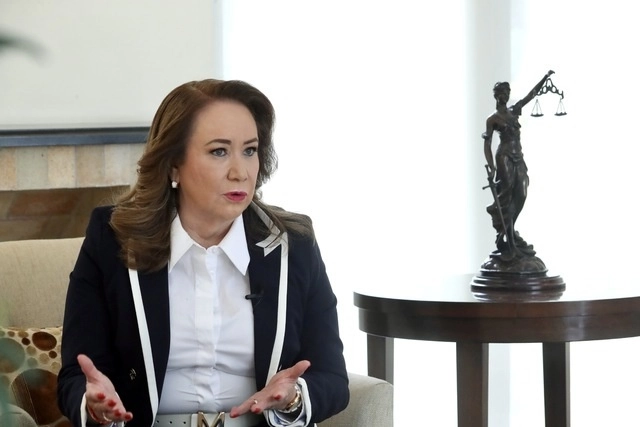Mexico City. Yasmín Esquivel Mossa, Minister of the Supreme Court of Justice of the Nation (SCJN), announced three proposals so that those who already have a career in the judicial career can access in a “priority” manner the positions of judges that would be determined by popular vote, in case the reform in this matter is approved.
Participating in the seventh forum of the National Dialogues on the Reform of the Judicial Branch, in the Chamber of Deputies, the judge indicated that there is a “large number of judges in office, federal and local, with proven professional solvency, because their access to the position was qualified according to the parameters of aptitude established by the Congress of the Union itself.”
After recalling that the stability of these people’s positions is protected by Article 97 of the Constitution, Esquivel considered that, “although all of them must be subject to public scrutiny through a popular vote with technical rigor, we cannot properly speak of an election, since they are already serving in their positions.”
For the above, he said, “we must think of a single transitional procedure for revocation of office,” similar to the one that exists in the case of the President of the Republic, “which is a system of citizen participation, regarding which we already had a successful exercise orchestrated throughout the country by the INE in 2022.”
In this context, he added to his original proposal on judicial reform “a transitional article so that both circuit magistrates and district judges currently in office participate in a national recall campaign within the electoral district in which they serve in order to have their appointment revoked, if the majority of citizens so decide.”
The above, “within a participation of at least 40 percent of people registered on the corresponding nominal list of voters, or the percentage that this sovereignty considers appropriate.”
Esquivel Mossa stressed that if the judges “are not revoked from their positions and if they were already ratified, they will keep their appointments for the entire period for which they were appointed. And those who are not ratified will continue to exercise their position under the terms of the initiative for a period of 9 years, remaining eligible to participate in the subsequent election.”
His second proposal, in order to “not interrupt the judicial career of secretaries, attorneys and other employees of the Judiciary, is that “those who are already working in the different jurisdictional bodies, be allowed to access the popular election processes on a priority basis, as long as they meet the requirements of article 97 of the constitutional initiative.”
Thirdly, “and for a fundamental transformation of the Federal Judicial Branch as an affirmative action, that the first choice of ministers of the SCJN and collegiate courts and district courts be exclusively nominated to women, to achieve their greater presence in the organs of administration of justice.”
With his nuances, Judge Juan Luis González Alcántara proposed a scheme similar to that described by Esquivel. During his participation in the forums, he said that, if the popular vote as a means of electing judges is an “irreducible fact,” he would propose that this vote “allows for the evaluation of their performance.”
“Let us use the ballot box to decide whether judges and magistrates have satisfactorily performed their work and should therefore remain in office or be removed. The popular vote should not be a tool to turn friends of power into judges or magistrates. On the contrary, the popular vote can serve to reward or even punish judges trained in the judicial career and thus make them accountable to society,” he said.
#Esquivel #Mossa #presents #proposals #choosing #judges
– 2024-07-31 08:08:58


